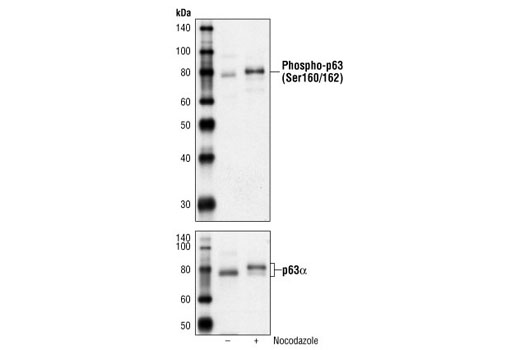| Gene Symbol |
TP63
|
| Entrez Gene |
8626
|
| Alt Symbol |
AIS, B(p51A), B(p51B), EEC3, KET, LMS, NBP, OFC8, RHS, SHFM4, TP53CP, TP53L, TP73L, p40, p51, p53CP, p63, p73H, p73L
|
| Species |
Human
|
| Gene Type |
protein-coding
|
| Description |
tumor protein p63
|
| Other Description |
CUSP|amplified in squamous cell carcinoma|chronic ulcerative stomatitis protein|keratinocyte transcription factor KET|transformation-related protein 63|tumor protein 63|tumor protein p53-competing protein|tumor protein p63 deltaN isoform delta
|
| Swissprots |
Q6VFJ3 Q9H3D3 Q9UP74 Q9UP26 Q9P1B7 O75080 Q9UE10 O75922 Q6VEG3 Q9H3P8 Q6VEG2 Q9H3D4 O76078 Q9UP27 Q6VH20 Q6VFJ1 Q9NPH7 Q7LDI4 Q9H3D2 Q6VFJ2 Q6VEG4 Q9UBV9 Q9P1B5 Q7LDI3 Q96KR0 Q9UP28 Q9P1B6 Q9P1B4 O75195 Q7LDI5
|
| Accessions |
AAF43486 AAF43487 AAF43488 AAF43489 AAF43490 AAF43491 AAF43492 AAF43493 AAG45607 AAG45608 AAG45609 AAG45610 AAG45611 AAG45612 AAQ63448 AAQ63449 AAQ63450 AAQ63451 AAQ63452 AAQ63453 AAQ63454 CDI30201 EAW78112 EAW78113 EAW78114 EAW78115 EAW78116 EAW78117 EAW78118 EAW78119 EAW78120 Q9H3D4 AB010153 BAA32433 AB016072 BAA32592 AB016073 BAA32593 AB042841 BAB20591 AF075428 AAC62633 AF075429 AAC62634 AF075430 AAC62635 AF075431 AAC62636 AF075432 AAC62637 AF075433 AAC62638 AF091627 AAC43038 AF116771 AAF61624 AJ315499 CAC48053 AK304127 BAH14112 BC039815 AAH39815 CB241431 EU446669 ABZ92198 GQ202689 ACV53609 GQ202690 ACV53610 Y16961 CAA76562 XM_005247843 XP_005247900 XM_005247844 XP_005247901 XM_005247846 XP_005247903 XM_011513251 XP_011511553 XM_011513252 XP_011511554 XM_011513253 XP_011511555 NM_001114978 NP_001108450 NM_001114979 NP_001108451 NM_001114980 NP_001108452 NM_001114981 NP_001108453 NM_001114982 NP_001108454 NM_003722 NP_003713
|
| Function |
Acts as a sequence specific DNA binding transcriptional activator or repressor. The isoforms contain a varying set of transactivation and auto-regulating transactivation inhibiting domains thus showing an isoform specific activity. Isoform 2 activates RIPK4 transcription. May be required in conjunction with TP73/p73 for initiation of p53/TP53 dependent apoptosis in response to genotoxic insults and the presence of activated oncogenes. Involved in Notch signaling by probably inducing JAG1 and JAG2. Plays a role in the regulation of epithelial morphogenesis. The ratio of DeltaN-type and TA*-type isoforms may govern the maintenance of epithelial stem cell compartments and regulate the initiation of epithelial stratification from the undifferentiated embryonal ectoderm. Required for limb formation from the apical ectodermal ridge. Activates transcription of the p21 promoter. {ECO:0000269|PubMed:11641404, ECO:0000269|PubMed:12374749, ECO:0000269|PubMed:12446779, ECO:0000269|PubMed:12446784,
|
| Subcellular Location |
Nucleus {ECO:0000269|PubMed:12446779, ECO:0000269|PubMed:20123734}.
|
| Tissue Specificity |
Widely expressed, notably in heart, kidney, placenta, prostate, skeletal muscle, testis and thymus, although the precise isoform varies according to tissue type. Progenitor cell layers of skin, breast, eye and prostate express high levels of DeltaN-type isoforms. Isoform 10 is predominantly expressed in skin squamous cell carcinomas, but not in normal skin tissues. {ECO:0000269|PubMed:11248048, ECO:0000269|PubMed:9774969}.
|
| Top Pathways |
MicroRNAs in cancer
|










![All lanes : Anti-p63 antibody [4E5] (ab110038) at 1/500 dilutionLane 1 : A431 cell lysate.Lane 2 : HeLa cell lysate.Lane 3 : Jurkat cell lysate.Lane 4 : THP1 cell lysate.Lane 5 : NIH 3T3 cell lysate.Lane 6 : COS7 cell lysate.Lane 7 : PC12 cell lysate.](http://www.bioprodhub.com/system/product_images/ab_products/2/sub_4/6067_p63-Primary-antibodies-ab110038-1.jpg)
![All lanes : Anti-p63 antibody [C24-I] - N-terminal (ab179874) at 1/1000 dilutionLane 1 : Recombinant tagged Human AMACR + p63 (aa 1 – 680) at 0.1 µgLane 2 : Recombinant tagged Human AMACR + p63 (aa 1 – 680) at 0.2 µgLane 3 : Recombinant tagged Human AMACR + p63 (aa 1 – 680) at 0.5 µg](http://www.bioprodhub.com/system/product_images/ab_products/2/sub_4/6073_ab179874-208339-ab179874.jpg)



![Nuclear expression of p63 visualized with ab191893 a rabbit monclonal anti-p63 [V22-E] in basal cell carcinoma of the skin.](http://www.bioprodhub.com/system/product_images/ab_products/2/sub_4/6090_ab191893-228809-191893-IHC1.jpg)
![Anti-p63 antibody [Y289] (ab32353) at 1/4000 dilution (unpurified) + A431 cell lysate at 10 µgSecondaryPeroxidase-conjugated goat anti-rabbit IgG (H+L) at 1/1000 dilution](http://www.bioprodhub.com/system/product_images/ab_products/2/sub_4/6092_ab32353-241828-ab32353upwb.jpg)

